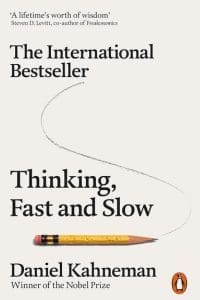
Why Emotional Control Matters in Youth Sport
With Matt Young
Every parent and coach wants to see their young child or athlete perform with confidence, enjoy their sport, and handle pressure well. Yet, as former professional footballer and anxiety coach Matt Young explains on the Demystifying Mental Toughness podcast, young people often struggle not because they lack skill but because they feel out of control emotionally.
Whether it’s a missed penalty, being dropped from the team, or worrying about what others think, those moments can trigger strong emotions that affect confidence and consistency. Helping young athletes learn emotional control is one of the most valuable skills we can teach, and it starts early.
“When we take emotional control,” Matt says, “we create freedom within ourselves. No matter what happens out there, we can still feel balanced, safer, and more confident.”
From Pressure to Performance: What Emotional Control Looks Like
For many teenagers in sport, pressure builds quickly. From expectations, competitive nerves or fear of letting others down. Emotional control doesn’t mean suppressing those feelings. Instead, it means recognising them, understanding them, and responding in the right way for the situation at hand.
Young athletes who can regulate their emotions tend to:
- Stay composed after mistakes
- Communicate better with teammates and coaches
- Bounce back quicker from setbacks
- Enjoy their sport more
When children learn these skills between, they carry them into adulthood not only in sport but also in school, friendships, and life.
The Hidden Danger of the “Mask”
Matt shared how, during his football career, he wore a confident mask to hide his anxiety. Many young athletes do the same, they pretend they’re fine even when they’re actually struggling.
Over time, this can lead to burnout, frustration, and even quitting sport altogether. Parents and coaches can help by creating safe spaces where honesty is welcomed. If a child says, “I’m nervous,” or “I’m scared to make a mistake,” that’s not weakness it’s emotional awareness.
The goal isn’t to eliminate pressure but to help young athletes understand and work with it.
“It’s not about controlling everything around you,” Matt says. “It’s about taking control of what’s inside you.”
Why Being Proactive Matters
In the podcast episode, Matt compares emotional development to car maintenance we shouldn’t wait until the car breaks down to fix it. Many young athletes only get emotional support once they’ve lost confidence or stopped enjoying their sport. Or even when things are going well too, when excitement can take over. Instead, emotional control should be built before those challenges arise.
Here’s how parents and coaches can take a proactive approach:
- Talk about emotions regularly. Ask how they feel after games, not just jumping in and asking about what they did well or poorly.
- Normalise nerves and mistakes. Explain that even top athletes get anxious and make errors.
- Model calm behaviour. Your reactions to referees, coaches, or your child’s performance teach them how to handle emotions.
- Encourage recovery. Emotional rest (time away from performance talk) is as important as physical rest.
When young athletes learn to process emotion early, they become more adaptable, confident, and resilient.
For Coaches: Building Emotionally Intelligent Teams
Youth coaches often focus heavily on technical and tactical training. But emotional preparation is just as important. As Matt notes, “Most clubs prepare players physically and tactically but very few prepare them emotionally.”
Coaches can help by:
- Starting sessions with brief mindset check-ins (“How’s everyone feeling today?”)
- Reinforcing effort, attitude, and composure over outcomes
- Giving players space to make and learn from mistakes
- Talking about pressure openly, rather than avoiding it
When coaches lead with empathy and emotional intelligence, they create environments where players thrive not just perform.
For more support on this, check out:
>> Helping Young Athletes Thrive Under Pressure
A Message for Parents: Control the Controllable
Parents naturally want to protect their children from pain or disappointment. But as Matt points out, trying to control every outcome can increase a young person’s anxiety.
Instead of focusing on results, help your child control what is in their power. Their effort, attitude, and reactions.
Some helpful questions you can ask a few hours after matches or events when emotions have died down:
- “What did you learn about yourself today?”
- “How did you handle that challenging moment?”
- “What can you try differently next time?”
By shifting from judgment to curiosity, you help your child build emotional awareness and resilience.
For Further Reading:
>> Conversations with Kids: Big Picture Mentality
Helping Young People Find Balance
The ultimate goal is balance teaching young athletes they can care deeply about sport without being consumed by it. As Matt shared, “Football was the vehicle, not my identity.”
Encouraging your child to have interests outside sport, friends, hobbies, downtime helps them build confidence that isn’t entirely tied to performance.
This broader identity supports mental well-being and prevents the all-or-nothing thinking that leads to burnout or loss of enjoyment.
Key Takeaways for Parents and Coaches
- Emotional control gives young athletes freedom to express themselves and confidence under pressure.
- Encourage openness about feelings rather than hiding behind a “mask.”
- Be proactive, teach emotional regulation before challenges hit.
- Focus on effort, learning and composure instead of results.
- Build balanced identities beyond sport to support long-term well-being.
You can also join our online community – THE SPORTS PSYCHOLOGY HUB – for regular Sports Psychology tips, podcasts, motivation and support.

Best Wishes
David Charlton
Global Sports Psychologist who is located near Newcastle Upon Tyne, UK and willing to travel Internationally. David also uses online video conferencing software (Zoom, Facetime, WhatsApp) on a regular basis and has clients who he has supported in the UK, UAE, Saudi Arabia, Australia and New Zealand.
Managing Director – Inspiring Sporting Excellence and Founder of The Sports Psychology Hub. With over 15 years experience supporting athletes, coaches, parents and teams to achieve their goals, quickly.






